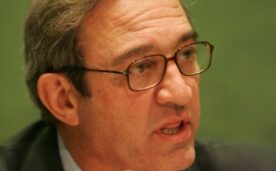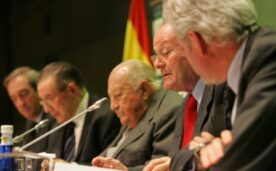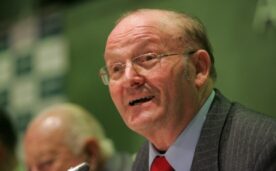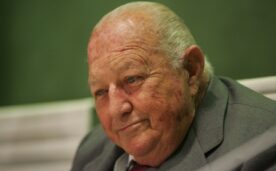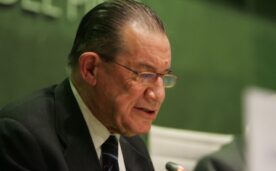The Rafael del Pino Foundation hosted the round table entitled "The 1959 stabilisation plan. Ten years later" on 11 January 2010. The round table was attended by the former Technical Secretary General of the Ministry of Trade when the plan was drawn up, Manuel Varela Parache, Emeritus Professor at the Complutense University of Madrid and the San Pablo CEU University; Juan Velarde Fuertes, Academician of the Royal Academy of Moral and Political Sciences and Manuel Jesús González González, Academician of the Royal Academy of History. The speakers were introduced by Claudio Boada, President of the Círculo de Empresarios.
Professor Velarde stated that "there are parallels between what happened in 1959 and the current situation. In 1959 there was a tremendous foreign trade crisis. Reserves and so on had been eliminated. Now we have the same situation, but with one difference: we have become heavily indebted abroad. The problem of the foreign sector is tremendous, but at that time there was no possibility of obtaining credit. Now, with the euro, we have been able to get credit, and we have got into debt. To solve it, we have to try to be more competitive. In 1959 we acted by opening up the market, eliminating the imbalance in the public sector, controlling monetary policy... a whole set of measures. Now we have to move in other parameters; we are in a rich economy, with a stable monetary environment. From there, we have to be competitive, we have to change the labour market and the energy mechanism. Now we have to rebuild the mechanism of the welfare state, then we had to create it. That's where we have to go.
Manuel Jesús González González, Member of the Royal Academy of History, pointed out that what was changed in 1959 "was not the economic mentality of the country, but that of the administration, the mentality of the Regime". Professor González recalled the protagonists of that change: "A Command without infantry, as one of them, Juan Sarda, and two ministers, Ullastres and Navarro, changed the official economic mentality of the Regime. They changed the way the economy was organised with enormous resistance, because many of the natural heirs of Francoism considered this change to be a betrayal of Francoism. But those people, gently, plainly, made the change".
Regarding the current situation, Professor González recalled that there are still pending issues, such as liberalising the labour market: "It is a market that does not seem to be adjusting well now, and there is certainly political resistance to its liberalisation, until some determined government thinks more about the healthy functioning of the economy than about staying in power".
